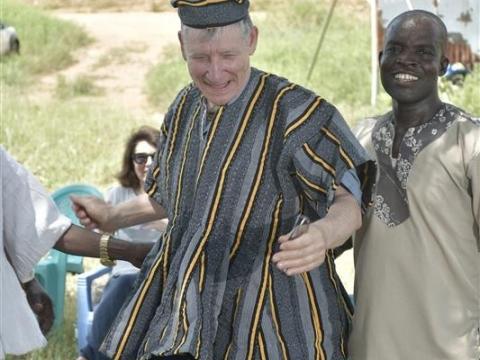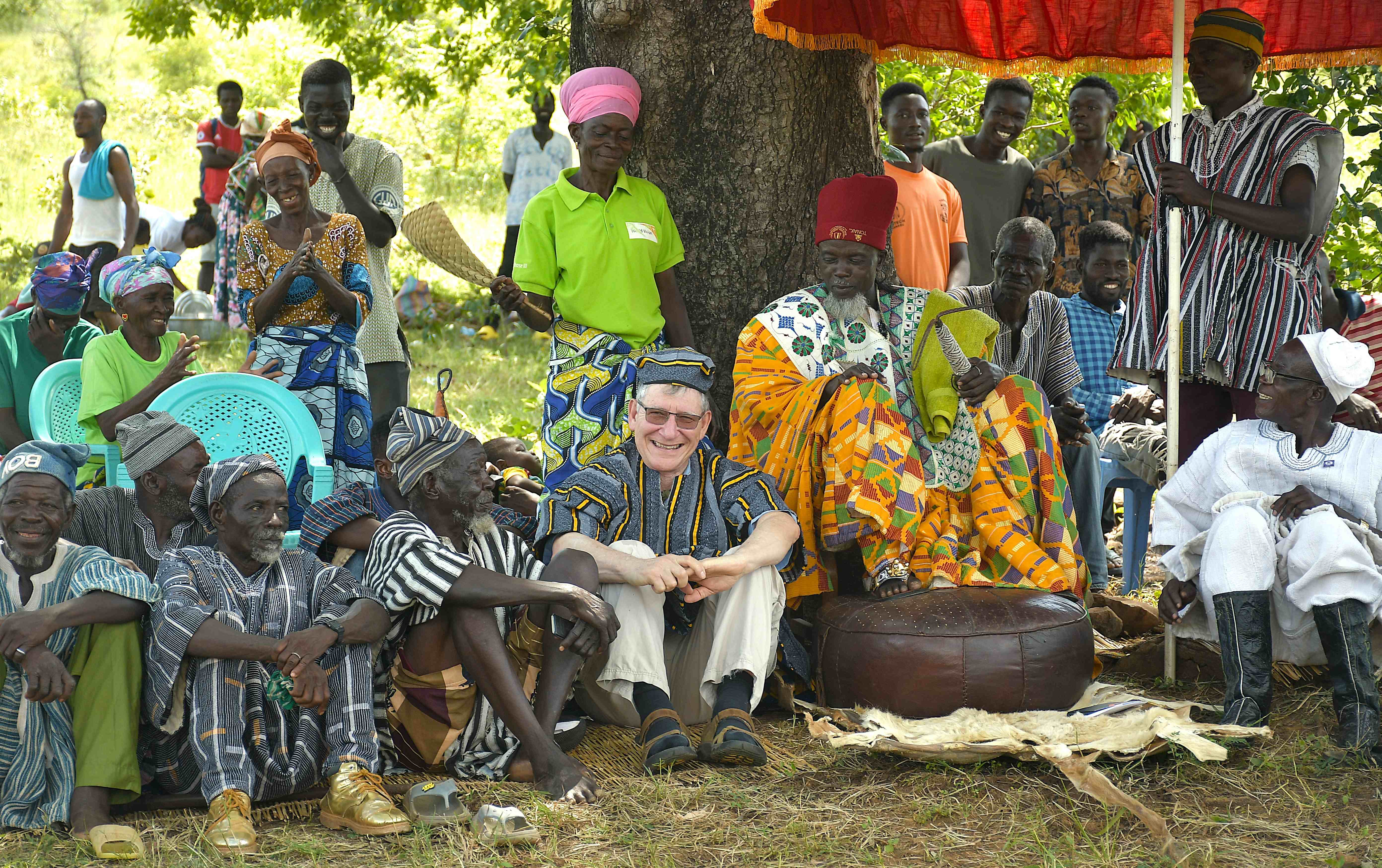The Forest Maker Honoured: Tony Rinaudo Named Development Chief in Ghana

By Priscilla Adjei-Laryea, Grants, Marketing & Communicaitons Specialist
On 21 October 2024, during a European Vision trip to Ghana, a team comprising the CEOs of World Vision France and Switzerland, the Director of Philanthropy for World Vision International, and several prominent donors visited the community of Yameriga in Ghana's Talensi District. The purpose of the visit was to celebrate a 14-year-old Farmer Managed Natural Regeneration (FMNR) field initiated by Tony Rinaudo and the FMNR project team.
The local community gathered in celebration and gratitude as their chief, Naaba Kogbira Maantihig, honoured Tony Rinaudo by naming him Naaba Amalteng, which means 'development chief'. This title recognised Rinaudo's transformative contribution to the community when he introduced the practice of FMNR to Yameriga in 2009.
Tony Rinaudo, an Australian agronomist known as "The Forest Maker," has dedicated his life to reversing land degradation through FMNR. His journey began over forty years ago in Niger, where he discovered that tree stumps and root systems hidden underground could regenerate forests in arid, degraded landscapes. Using simple, sustainable methods that encourage natural tree regrowth, Rinaudo transformed millions of hectares across Africa, restoring fertility, increasing food security, and building resilience to climate change. Since the FMNR approach arrived in Yameriga, the benefits have exceeded everyone’s expectations.

From scepticism to transformation
Initially, the people of Yameriga were sceptical about FMNR. The idea of reviving barren, dry land with techniques as simple as pruning and managing regrowth seemed unconvincing. But as they embraced FMNR, the land began to change, slowly at first, and then dramatically. Previously degraded land gradually turned green, with trees sprouting and native vegetation returning. The landscape that once struggling to support crops became fertile again, allowing the people to plant not only trees but hope.
Today, Yameriga is a thriving testament to FMNR's success, with restored land now providing food, firewood and income. The community's transformation has attracted visitors from across Ghana and beyond. Government officials, NGOs and individuals who want to learn how simple, local methods can achieve sustainable environmental regeneration. Yameriga has become a centre of learning, demonstrating how FMNR empowers farmers to build self-sufficiency and resilience. With Rinaudo's guidance, what began as an ambitious idea has become a source of inspiration for communities throughout the region.
For Yameriga, this transformation goes far beyond the land. FMNR has fostered a sense of pride and independence in the people. Once reliant on outside aid, they now steward their own resources, leading the way in sustainable practices that align with their culture and values. They have seen how caring for the land also strengthens the fabric of the community through increased collaboration, shared knowledge and a renewed commitment to protecting the environment for future generations.
The celebration in Yameriga also marked a broader vision for the future, as leaders like Naaba Kogbira Maantihig hope to see FMNR spread through church networks and community groups across Ghana. The aim is to integrate FMNR into faith-based teachings and empower rural communities to restore their land with the support of faith-based and development organisations. Through this alliance, Yameriga's success can inspire a nationwide movement of environmental stewardship in which communities not only transform their landscapes, but also strengthen their food security, climate resilience and social cohesion.
The story of Tony Rinaudo and Yameriga is one of resilience, innovation and unity; a powerful reminder that sustainable change can start small and grow beyond anyone's imagination. Rinaudo's new title, Naaba Amalteng, celebrates a legacy of hope and regeneration, leaving an impact from a single village to a continent.